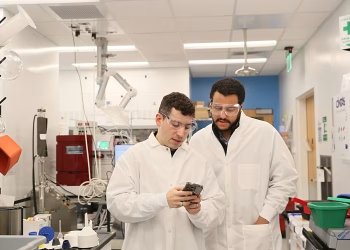…cost btw $2 to $4 per dose
…help prevent death due to malaria
The World Health Organisation (WHO) has announced the recommendation for a new malaria vaccine R21/Matrix-M to aid efforts towards preventing the prevalence of malaria among children across Africa.
In a statement on its website, the organisation disclosed that its latest move follows a recommendation from its Strategic Advisory Group of Experts on Immunization (SAGE) and the Malaria Policy Advisory Group (MPAG) together with the recommendation of Director General, Dr. Tedros Adhanom.
The statement from the body reads, “The World Health Organisation (WHO) has recommended a new vaccine, R21/Matrix-M, for the prevention of malaria in children.”
“The recommendation follows advice from the WHO: Strategic Advisory Group of Experts on Immunization (SAGE) and the Malaria Policy Advisory Group (MPAG) and was endorsed by the WHO Director-General following its regular biannual meeting held on 25-29 September.”
The new vaccine is the second malaria vaccine after RTS, S was rolled out in 2021. The statement clarified that both vaccines are safe and would help in preventing deaths attributed to the disease yearly.
The vaccine costs around $2 to $4 per dose and about 28 African countries already plan to add it as part of their national immunization strategy.
The Gavi Alliance for Vaccine will also be providing technical and financial support for the rollout of the vaccine in about 18 African countries from early to mid-2024.
WHO officials speak
Speaking on the breakthrough, the Director General of the World Health Organisation, Dr. Tedros Adhanom Ghebreyesus said, “As a malaria researcher, I used to dream of the day we would have a safe and effective vaccine against malaria. Now we have two.
“Demand for the RTS, S vaccine far exceeds supply, so this second vaccine is a vital additional tool to protect more children faster, and to bring us closer to our vision of a malaria-free future.”
Also, WHO Regional Director for Africa, Dr Matshidiso Moeti, said the deployment of the two vaccines can help stem the spread of the disease and save thousands of lives on the continent. In her words,
“This second vaccine holds real potential to close the huge demand-and-supply gap. Delivered to scale and rolled out widely, the two vaccines can help bolster malaria prevention and control efforts and save hundreds of thousands of young lives in Africa from this deadly disease.”
Malaria in Africa
The world has always associated malaria as more of an African disease and the figures on prevalence prove that. The continent hosts 95% of malaria cases globally and contributes 96% to deaths from the disease worldwide.
According to the WHO, malaria is responsible for the death of 619 000 in 2021 with about 247 million cases reported in the same year. Children under five years are the most victims accounting for about 80% of deaths.
In 2021, there were about 68 million reported cases of malaria in Nigeria and about 194,000 deaths from the disease. It is said that Nigeria accounts for 27% of malaria cases worldwide.
Beyond the lives lost, the malaria consortium estimates that the disease costs the continent about $12bn in GDP and slows economic growth by 1.3%.
































